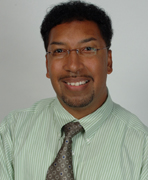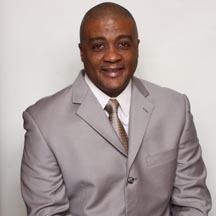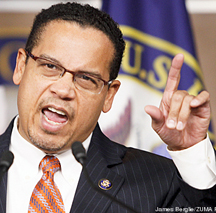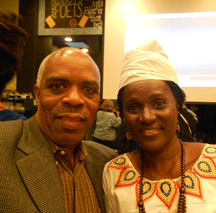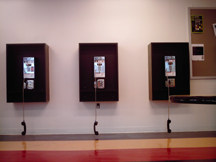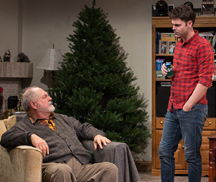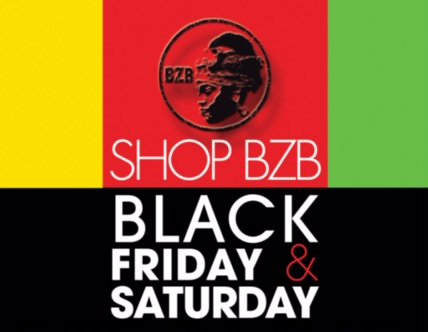If Opening From an E-mail,
Click Here for Better Viewing
November 24– December 7, 2016
On The Dock This Issue:
 |
Rising Beyond Poverty I grew up in Portsmouth, Virginia in the projects called “Lincoln Park,” an area berated with crime, violence, drugs, and all of the things that come with it. | |
|---|---|---|
| Don’t Mourn, Organize Jamelle Bouie tweeted: Trump’s win means that White nationalism is at the center of our politics, and that people on the right and left will try to accommodate it. |
||
| Books Worth Cracking Open We can tell it’s the holiday (buying) season since Port of Harlem is getting offers for free books to review for our readers. Well, I have looked at them, read some, and here are the ones I cracked, then kept open: . . . |
||
| A Port of Harlem Fall on TV/Radio Great Day Washington (WUSA-TV9) and WHUR (96.3.) and HUR Voices Sirius XM Channel 141 featured Port of Harlem presenters. |
||
| Going to Gambia 2017 We are still molding the plans, but the West African adventure will start around September 1, 2017 in time for the Tobaski holiday. |
||
| Straight White Men Straight White Men is an unusual play and, ironically, I saw it with an audience that made the experience even more noteworthy. |
||
| Activities Interesting, diverse things to do |
||
| Readers' Trends Port Of Harlem, Pinterest, and Facebook (Add to our more than 850 LIKES) |
"Oh my God, Boo, is it you? I thought for sure that you were dead!” Rodney shouted with a look of shock on his face as if he had seen a ghost. Boo was my nickname. Rodney and I had run into each other in Washington, D.C. on H Street, N.E. We hadn’t seen each other since college, which at that time, had been seven years prior.
You see, I grew up in Portsmouth, Virginia in the projects called “Lincoln Park,” an area berated with crime, violence, drugs, and all of the things that come with it. If you were an African American young boy growing up in these conditions, you would probably end up dead or incarcerated by the age of 18. Although this was the plight of most young Black males, I always felt as if I had a chance of becoming successful in life.
Many of my peers just couldn’t see a life beyond the hood. Back then, growing up in the 1970s, I didn’t feel like I was better than my peers, I just felt different in the sense that I was going to make it out of the projects one way or another. But, for me, like most Black males, the odds were incredible. My father abandoned my mother when I was three-years-old, leaving her to raise me and my younger brother and sister, who were fraternal twins.
When I was nine-years-old, I was sexually abused. For years, I felt ashamed and betrayed, and I blamed myself for this traumatic event. As a kid, grown-ups were the people that you were supposed to be able to trust. But, after that horrible experience, I did not trust anyone.
As a result of being abused, I struggled with my confidence and self-esteem. I was so embarrassed that I couldn’t tell anyone. Can you imagine the emotional pain and confusion that I felt at nine-years-old with nowhere to turn? I knew that telling my mother would have been like sending her to jail because she would have killed the person who raped me if I had told her.
In spite of being sexually abused, I seemed to transition through puberty as a typical growing boy would. I loved girls and did the things that adolescents did. I still hated the projects because people labeled me and looked down on all of us who were from the projects. These feelings made me more determined than ever to escape this environment.
Thank God for my uncle (my mother’s brother), who I greatly admired for his intelligence, classy style, and for being a decent person. He was like a father to me. With his encouragement, I went to college.
You see, I grew up in Portsmouth, Virginia in the projects called “Lincoln Park,” an area berated with crime, violence, drugs, and all of the things that come with it. If you were an African American young boy growing up in these conditions, you would probably end up dead or incarcerated by the age of 18. Although this was the plight of most young Black males, I always felt as if I had a chance of becoming successful in life.
Many of my peers just couldn’t see a life beyond the hood. Back then, growing up in the 1970s, I didn’t feel like I was better than my peers, I just felt different in the sense that I was going to make it out of the projects one way or another. But, for me, like most Black males, the odds were incredible. My father abandoned my mother when I was three-years-old, leaving her to raise me and my younger brother and sister, who were fraternal twins.
When I was nine-years-old, I was sexually abused. For years, I felt ashamed and betrayed, and I blamed myself for this traumatic event. As a kid, grown-ups were the people that you were supposed to be able to trust. But, after that horrible experience, I did not trust anyone.
As a result of being abused, I struggled with my confidence and self-esteem. I was so embarrassed that I couldn’t tell anyone. Can you imagine the emotional pain and confusion that I felt at nine-years-old with nowhere to turn? I knew that telling my mother would have been like sending her to jail because she would have killed the person who raped me if I had told her.
In spite of being sexually abused, I seemed to transition through puberty as a typical growing boy would. I loved girls and did the things that adolescents did. I still hated the projects because people labeled me and looked down on all of us who were from the projects. These feelings made me more determined than ever to escape this environment.
Thank God for my uncle (my mother’s brother), who I greatly admired for his intelligence, classy style, and for being a decent person. He was like a father to me. With his encouragement, I went to college.
But, after my sophomore year, I have to admit that I was allured by the opportunity to make (what I thought was) the big bucks and have a career job as a police officer in the DC Metropolitan Police Department. However, I couldn’t do both, go to college and the police academy, because the training hours overlapped with my morning classes. So, I decided to drop out of college.
If you were an African American young boy growing up in these conditions, you would probably end up dead or incarcerated by the age of 18. Although this was the plight of most young Black males, I always felt as if I had a chance of becoming successful in life.
I became a police officer at one of the worst times, in the 1980s, during the height of the crack epidemic and when DC was known as the “murder capitol.” Although police work is very dangerous, I never really feared for my life because I had an abiding faith that God would always watch over and protect me. I also seemed to work well with the citizens because I knew first hand their experiences, and that was often what they needed: a concerned officer to genuinely listen to them.
This is when I discovered my love for counseling and helping people with their problems. As the years past, I eventually went back to school to finish my college degree and earn my master’s degree, all while working as a police officer; this was a daunting feat, but I did it. Shortly afterwards, I got married to my wife, Lynn, who gave birth to our handsome son.
Working as a police officer, I became overwhelmed and the cases became more challenging. I wanted to do more to address the root of people’s problems rather than show up after the devastation. I eventually resigned from the police force and took a job providing mental health services. With my ultimate goal in mind of opening my own practice, subsequently, I pursued and earned a doctorate degree in psychology against all odds.
What are the chances of an inner city Black kid getting a doctorate? Yet, I defied the statistics for every brother and sister who was told that he or she couldn’t become somebody. I didn’t stop there. I wrote two books, “Overcoming Obstacles: Beating the Odds” and “The Act of Change,” to help more of us to escape the projects or whatever is holding us back, and to live our dreams.
Dr. Reynolds is the founder of Transformers Academy.
If you were an African American young boy growing up in these conditions, you would probably end up dead or incarcerated by the age of 18. Although this was the plight of most young Black males, I always felt as if I had a chance of becoming successful in life.
I became a police officer at one of the worst times, in the 1980s, during the height of the crack epidemic and when DC was known as the “murder capitol.” Although police work is very dangerous, I never really feared for my life because I had an abiding faith that God would always watch over and protect me. I also seemed to work well with the citizens because I knew first hand their experiences, and that was often what they needed: a concerned officer to genuinely listen to them.
This is when I discovered my love for counseling and helping people with their problems. As the years past, I eventually went back to school to finish my college degree and earn my master’s degree, all while working as a police officer; this was a daunting feat, but I did it. Shortly afterwards, I got married to my wife, Lynn, who gave birth to our handsome son.
Working as a police officer, I became overwhelmed and the cases became more challenging. I wanted to do more to address the root of people’s problems rather than show up after the devastation. I eventually resigned from the police force and took a job providing mental health services. With my ultimate goal in mind of opening my own practice, subsequently, I pursued and earned a doctorate degree in psychology against all odds.
What are the chances of an inner city Black kid getting a doctorate? Yet, I defied the statistics for every brother and sister who was told that he or she couldn’t become somebody. I didn’t stop there. I wrote two books, “Overcoming Obstacles: Beating the Odds” and “The Act of Change,” to help more of us to escape the projects or whatever is holding us back, and to live our dreams.
Dr. Reynolds is the founder of Transformers Academy.
With the election of Donald Trump as President of the United States, many Americans are deeply concerned about the direction he wants to take this country. In the words of Maya Rockeymore, President & CEO Center for Global Policy Solutions, the results “imperils our opportunity to achieve a multicultural democracy.”
As a publication that presents news and information from an inclusive, diverse, pan-African perspective, we provide you several thoughts on the election from a diverse group of individuals and organizations you may want to connect with or join to keep informed and/or participate to defend inclusivity and diversity.
Rep. Keith Ellison provided one of the clearest assessments. He said, “There is no question about it. The results of Tuesday’s election in many ways seem to defy everything we teach our children about being decent, respectful, humble, and fair.” He concluded, “Don’t mourn. Organize.”
Alex Lawson, Executive Director of Social Security Works, reminded Americans that while President-elect Donald Trump promised to leave Social Security alone, Representative Paul Ryan “has made dismantling Social Security, Medicare and Medicaid his personal mission.” Lawson also said that in 2005, a reelected President George W. Bush and a unified Republican Congress set out on a plan to privatize our Social Security system, but the American people stood up to protect the insurance system.
Slate's chief political correspondent Jamelle Bouie tweeted: Trump’s win means that White nationalism is at the center of our politics, and that people on the right and left will try to accommodate it.
As a publication that presents news and information from an inclusive, diverse, pan-African perspective, we provide you several thoughts on the election from a diverse group of individuals and organizations you may want to connect with or join to keep informed and/or participate to defend inclusivity and diversity.
Rep. Keith Ellison provided one of the clearest assessments. He said, “There is no question about it. The results of Tuesday’s election in many ways seem to defy everything we teach our children about being decent, respectful, humble, and fair.” He concluded, “Don’t mourn. Organize.”
Alex Lawson, Executive Director of Social Security Works, reminded Americans that while President-elect Donald Trump promised to leave Social Security alone, Representative Paul Ryan “has made dismantling Social Security, Medicare and Medicaid his personal mission.” Lawson also said that in 2005, a reelected President George W. Bush and a unified Republican Congress set out on a plan to privatize our Social Security system, but the American people stood up to protect the insurance system.
Slate's chief political correspondent Jamelle Bouie tweeted: Trump’s win means that White nationalism is at the center of our politics, and that people on the right and left will try to accommodate it.
And Senator Elizabeth Warren says she has only so much room for accommodation. She says that Democrats’ first job in this new era is to “stand up to bigotry. There is no compromise here.” But added, “when his (Trump’s) goal is to increase the economic security of middle class families, then count me in.”
However, on other issues, including Obamacare, she writes “We must bring down the costs of health insurance and the cost of health care. But if the Republicans want to strip away health insurance from 20 million Americans, if they want to let cancer survivors get kicked to the curb, if they want to throw 24-year-olds off their parents’ health insurance, then we will fight them every step of the way.”
Rockeymore has started a new organization, the Inclusion Revolution. She expressed concern that the election environment “has perpetuated fear, prejudice, ignorance, and hate while creating an atmosphere that endangers freedoms for women, non-white racial and ethnic groups, Jews, Muslims, the foreign born, the economically marginalized, and those who are not heterosexual.”
National Action Network – We Shall Not be Moved March – Saturday, January 14
Women’s March on Washington – Saturday, January 21
Million Women March in New York City - Saturday, January 21
Stand As One - Take the Pledge to Register as a Muslim
Boycott Stores that Work with Trump
Buycott App - scan and and see who created the product you are considering buying
However, on other issues, including Obamacare, she writes “We must bring down the costs of health insurance and the cost of health care. But if the Republicans want to strip away health insurance from 20 million Americans, if they want to let cancer survivors get kicked to the curb, if they want to throw 24-year-olds off their parents’ health insurance, then we will fight them every step of the way.”
Rockeymore has started a new organization, the Inclusion Revolution. She expressed concern that the election environment “has perpetuated fear, prejudice, ignorance, and hate while creating an atmosphere that endangers freedoms for women, non-white racial and ethnic groups, Jews, Muslims, the foreign born, the economically marginalized, and those who are not heterosexual.”
National Action Network – We Shall Not be Moved March – Saturday, January 14
Women’s March on Washington – Saturday, January 21
Million Women March in New York City - Saturday, January 21
Stand As One - Take the Pledge to Register as a Muslim
Boycott Stores that Work with Trump
Buycott App - scan and and see who created the product you are considering buying
We can tell it’s the holiday (buying) season since Port of Harlem is getting offers for free books to review for our readers. Well, I have looked at them, read some, and here are the ones I cracked, then kept open:
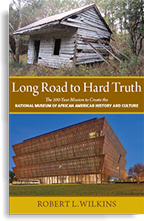 Long Road to Truth (Proud Legacy Publishing, $14,99) Of course, it would be hard to believe that the new very popular National Museum of African American History and Culture sprung up over night. It will be equally hard to believe that every person enamored by the history inside the museum will be equally captivated by the history of the museum’s making.
Long Road to Truth (Proud Legacy Publishing, $14,99) Of course, it would be hard to believe that the new very popular National Museum of African American History and Culture sprung up over night. It will be equally hard to believe that every person enamored by the history inside the museum will be equally captivated by the history of the museum’s making.
But, for history buffs, Robert L. Wilkins’ book is a must read. The judge by profession provides details and quotes, and places them in historical context. For instance, before reading the book, I heard that no Black Civil War veterans’ group marched in the grand parade at the war’s end. Wilkens, added to my knowledge: “These Black soldiers on display in the Grand Review were not only meant to be subservient but to provide comic relief.”
He continued to put vibrancy in the story by sharing that Nannie Helen Burroughs declined appointments by Congress to an earlier memorial because of her concerns about its weak funding support.
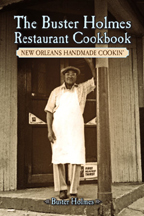 The Buster Holmes Restaurant Cookbook (Pelican Publishing, $16.95) This is another good book representing and documenting African-American culture in Louisiana from Pelican Publishing. Whether or not you are up to cooking Possum, Rabbit Potpourri or Buster’s Garlic Chicken, this cookbook features recipes that tell the story of our people. This is not a colorful, coffee table cookbook - - the black and white pictures are horrible, but the captions are intriguing. I don’t plan to prepare, nevertheless eat De’s Baked Coon and Sweet Potatoes, but look forward to the New Orleans Rice, Eggplant Casserole, and Blaine’s Banana Nut Bread.
The Buster Holmes Restaurant Cookbook (Pelican Publishing, $16.95) This is another good book representing and documenting African-American culture in Louisiana from Pelican Publishing. Whether or not you are up to cooking Possum, Rabbit Potpourri or Buster’s Garlic Chicken, this cookbook features recipes that tell the story of our people. This is not a colorful, coffee table cookbook - - the black and white pictures are horrible, but the captions are intriguing. I don’t plan to prepare, nevertheless eat De’s Baked Coon and Sweet Potatoes, but look forward to the New Orleans Rice, Eggplant Casserole, and Blaine’s Banana Nut Bread.
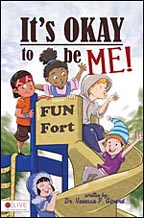 It’s Okay to be Me! (Tate Publishing, $10.99) Similar to Marlow Thomas’ 1974 groundbreaking “Free to Be . . . You and Me” ABC-TV special, Dr. Vanessa P. Girard’s children’s book celebrates and encourages diversity and inclusion. What is special about this book is that the words are poetic and very simple, and the pictures are very colorful and bright. It’s great for very small children.
It’s Okay to be Me! (Tate Publishing, $10.99) Similar to Marlow Thomas’ 1974 groundbreaking “Free to Be . . . You and Me” ABC-TV special, Dr. Vanessa P. Girard’s children’s book celebrates and encourages diversity and inclusion. What is special about this book is that the words are poetic and very simple, and the pictures are very colorful and bright. It’s great for very small children.
 Long Road to Truth (Proud Legacy Publishing, $14,99) Of course, it would be hard to believe that the new very popular National Museum of African American History and Culture sprung up over night. It will be equally hard to believe that every person enamored by the history inside the museum will be equally captivated by the history of the museum’s making.
Long Road to Truth (Proud Legacy Publishing, $14,99) Of course, it would be hard to believe that the new very popular National Museum of African American History and Culture sprung up over night. It will be equally hard to believe that every person enamored by the history inside the museum will be equally captivated by the history of the museum’s making.
But, for history buffs, Robert L. Wilkins’ book is a must read. The judge by profession provides details and quotes, and places them in historical context. For instance, before reading the book, I heard that no Black Civil War veterans’ group marched in the grand parade at the war’s end. Wilkens, added to my knowledge: “These Black soldiers on display in the Grand Review were not only meant to be subservient but to provide comic relief.”
He continued to put vibrancy in the story by sharing that Nannie Helen Burroughs declined appointments by Congress to an earlier memorial because of her concerns about its weak funding support.
 The Buster Holmes Restaurant Cookbook (Pelican Publishing, $16.95) This is another good book representing and documenting African-American culture in Louisiana from Pelican Publishing. Whether or not you are up to cooking Possum, Rabbit Potpourri or Buster’s Garlic Chicken, this cookbook features recipes that tell the story of our people. This is not a colorful, coffee table cookbook - - the black and white pictures are horrible, but the captions are intriguing. I don’t plan to prepare, nevertheless eat De’s Baked Coon and Sweet Potatoes, but look forward to the New Orleans Rice, Eggplant Casserole, and Blaine’s Banana Nut Bread.
The Buster Holmes Restaurant Cookbook (Pelican Publishing, $16.95) This is another good book representing and documenting African-American culture in Louisiana from Pelican Publishing. Whether or not you are up to cooking Possum, Rabbit Potpourri or Buster’s Garlic Chicken, this cookbook features recipes that tell the story of our people. This is not a colorful, coffee table cookbook - - the black and white pictures are horrible, but the captions are intriguing. I don’t plan to prepare, nevertheless eat De’s Baked Coon and Sweet Potatoes, but look forward to the New Orleans Rice, Eggplant Casserole, and Blaine’s Banana Nut Bread. It’s Okay to be Me! (Tate Publishing, $10.99) Similar to Marlow Thomas’ 1974 groundbreaking “Free to Be . . . You and Me” ABC-TV special, Dr. Vanessa P. Girard’s children’s book celebrates and encourages diversity and inclusion. What is special about this book is that the words are poetic and very simple, and the pictures are very colorful and bright. It’s great for very small children.
It’s Okay to be Me! (Tate Publishing, $10.99) Similar to Marlow Thomas’ 1974 groundbreaking “Free to Be . . . You and Me” ABC-TV special, Dr. Vanessa P. Girard’s children’s book celebrates and encourages diversity and inclusion. What is special about this book is that the words are poetic and very simple, and the pictures are very colorful and bright. It’s great for very small children. One Plastic Bag (Millbrook Press, $19.99) I am predisposed to like this book since it is based on a Gambian. But, I love this book and not just because I met the author, illustrator, and even the subject of the book, Isatou Ceesey, at the Africana Book Awards - - where the Awards group honored the book - - but also because it is about a woman who uses discarded plastic bags to make purses and other useful products.
One Plastic Bag (Millbrook Press, $19.99) I am predisposed to like this book since it is based on a Gambian. But, I love this book and not just because I met the author, illustrator, and even the subject of the book, Isatou Ceesey, at the Africana Book Awards - - where the Awards group honored the book - - but also because it is about a woman who uses discarded plastic bags to make purses and other useful products.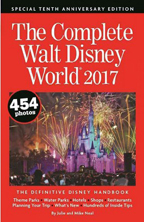 The Complete Walt Disney World 2017 (Adventure Keen, $24.95) I have not been to Disney World in decades and in no rush to return to high costs and long lines. However, if I was planning to go, I would read even more of this book. The details such as where to go and what do if it rains gives me a road map to plan a good time - - even though I was personally disappointed that the book suggested that I avoid Tomorrowland Speedway, a ride that I adored. The explanations and colorful pictures has encourage me to reassess my desire to visit Disney’s Animal Kingdom’s Africa section.
The Complete Walt Disney World 2017 (Adventure Keen, $24.95) I have not been to Disney World in decades and in no rush to return to high costs and long lines. However, if I was planning to go, I would read even more of this book. The details such as where to go and what do if it rains gives me a road map to plan a good time - - even though I was personally disappointed that the book suggested that I avoid Tomorrowland Speedway, a ride that I adored. The explanations and colorful pictures has encourage me to reassess my desire to visit Disney’s Animal Kingdom’s Africa section. Duct Tape Bags, 40 Projects for Totes, Clutches, Messenger Bags, and Bowlers. Richela Fabian Morgan’s book is a hefty and varied collection of hands-on projects for the beginning crafts person to the professional visual artist such as Karen O. Brown. “Each project idea is clearly photographed, followed by step by step, easy to follow instructions. Patterns and resources are in the back of the book. This publication has helped me learn easier ways to work with duct tape and expanded my thinking of possibilities for future projects,” commented Brown from her new studio at the District Clay Center in NE Wash. DC.
Duct Tape Bags, 40 Projects for Totes, Clutches, Messenger Bags, and Bowlers. Richela Fabian Morgan’s book is a hefty and varied collection of hands-on projects for the beginning crafts person to the professional visual artist such as Karen O. Brown. “Each project idea is clearly photographed, followed by step by step, easy to follow instructions. Patterns and resources are in the back of the book. This publication has helped me learn easier ways to work with duct tape and expanded my thinking of possibilities for future projects,” commented Brown from her new studio at the District Clay Center in NE Wash. DC.  The Woman Next Door (Picador Original, $16.00) I am not a fan of novels, but this one into I delved. Writer Yewande Omotoso is a native of Barbados, grew up in Nigeria, and now lives in South Africa. Similarly, her characters and settings reflect a pan-African experience.
The Woman Next Door (Picador Original, $16.00) I am not a fan of novels, but this one into I delved. Writer Yewande Omotoso is a native of Barbados, grew up in Nigeria, and now lives in South Africa. Similarly, her characters and settings reflect a pan-African experience.The main characters, Hortensia and Marion, are neighbors of different races, but learn that they have much in common. With skill, she writes of Hortensia, “She didn’t see the need to knock on the door and tell him she was leaving, either. She had convinced herself that Peter’s hearing, unlike his deteriorating body, was intact.”
Great Day Washington (WUSA-TV9) featured history making photographers Sharon Farmer and George Tolbert before they conducted a photography workshop at the Alexandria Black History Museum. During the same week, WHUR (96.3.) and HUR Voices Sirius XM Channel 141 featured Sarah Murphy Gray on its Insight Program. Gray talked about and latter discussed the proposed expansion of social security.
During the photography workshop, graphic designer Fitzroy Murray, who is rediscovering photography, shared a photo of telephones that Farmer and Tolbert praised as having “great composition.” Farmer added “that is art!”
Farmer also praised a photo by Terri Thrash as being a great silhouette, having great composition, and with action. However, Thrash questioned whether she should have taken the image, that she took in Burma during a National Geographic photographer’s trip, so that viewers could see the boater’s face. Farmer and Tolbert, both who don’t watch image-dependent TV because of its dumbing affect, says it is fine as it is.
Farmer also emphasized the beauty of taking pictures when people are not posing for the camera. Some of the best pictures are taken when people “are not all freezed up like a deer in headlights,” she quipped.
During the photography workshop, graphic designer Fitzroy Murray, who is rediscovering photography, shared a photo of telephones that Farmer and Tolbert praised as having “great composition.” Farmer added “that is art!”
Farmer also praised a photo by Terri Thrash as being a great silhouette, having great composition, and with action. However, Thrash questioned whether she should have taken the image, that she took in Burma during a National Geographic photographer’s trip, so that viewers could see the boater’s face. Farmer and Tolbert, both who don’t watch image-dependent TV because of its dumbing affect, says it is fine as it is.
Farmer also emphasized the beauty of taking pictures when people are not posing for the camera. Some of the best pictures are taken when people “are not all freezed up like a deer in headlights,” she quipped.
Farmer and Tolbert, who are also both native Washingtonians, emphasized the importance of using the camera’s manual. After asking who had brought their manual with them, Farmer “gave” an A to those who raised their hands. “That’s the keys to the kingdom,” Farmer quipped again.
Interestingly Bonita Bing, president of the Exposure Group, pointed out that there was a difference in the coloring of the image on her laptop and the image projected onto the big screen. Farmer then suggested that one can use ColorMunki to adjust the coloring on their monitors, printers and projectors to synchronize the colors.
The event was part of a series of programs from the pages of Port of Harlem magazine. “I would like to take this time to thank you very much for your work and dedication for everything Port of Harlem does and brings to the community. It was fantastic to be in the company of such accomplished photographers who provided pointers, tips, and great words of encouragement for all who attended that aspire to enhance their photographic skills,” added Thrash. Due to the audience’s request, we extended the two hour workshop by 30 minutes, but many stayed for an additional hour.
Interestingly Bonita Bing, president of the Exposure Group, pointed out that there was a difference in the coloring of the image on her laptop and the image projected onto the big screen. Farmer then suggested that one can use ColorMunki to adjust the coloring on their monitors, printers and projectors to synchronize the colors.
The event was part of a series of programs from the pages of Port of Harlem magazine. “I would like to take this time to thank you very much for your work and dedication for everything Port of Harlem does and brings to the community. It was fantastic to be in the company of such accomplished photographers who provided pointers, tips, and great words of encouragement for all who attended that aspire to enhance their photographic skills,” added Thrash. Due to the audience’s request, we extended the two hour workshop by 30 minutes, but many stayed for an additional hour.
You are invited to join Port of Harlem publisher and Port of Harlem Gambian Education Partnership president Wayne Young on his 10th journey to The Gambia, West Africa. We are still molding the plans, but the West African adventure will start around September 1, 2017 in time for the Tobaski holiday. A Gambian, who had experienced an American Memorial Day, once explained to Young that Tobaski is like the best barbecue he will ever see.
Young plans to stay for at least two weeks, but can accommodate those wishing to stay a shorter time. The trip will include a day in Dakar, Senegal on the way to Gambia to see Goree Island and a day in Dakar on the return to witness the African Renaissance Monument.
While in Gambia, travelers will visit the National Museum and the capital city of Banjul, visit POHGEP projects in Old Jeswang, Kotu, and Nema Kunka to the south of Banjul and in Bakindik on the North Bank. The expected small group will also visit Juffreh, the home of Kunte Kinte, and where Tina Thompson, a POHGEP board member, centers her project. We will also celebrate Tobaski with personal friends.
Young plans to stay for at least two weeks, but can accommodate those wishing to stay a shorter time. The trip will include a day in Dakar, Senegal on the way to Gambia to see Goree Island and a day in Dakar on the return to witness the African Renaissance Monument.
While in Gambia, travelers will visit the National Museum and the capital city of Banjul, visit POHGEP projects in Old Jeswang, Kotu, and Nema Kunka to the south of Banjul and in Bakindik on the North Bank. The expected small group will also visit Juffreh, the home of Kunte Kinte, and where Tina Thompson, a POHGEP board member, centers her project. We will also celebrate Tobaski with personal friends.
Tabaski, as it is called in Mandinka, or Eid Al Adha, as it is a called in Arab, is when families throughout the Gambia slaughter mostly sheep in ritual sacrifice. The occasion of Tabaski is in commemoration of Abraham’s willingness to sacrifice his own son, Ismail, in the name of Allah.
We stay in nice apartments. Traditionally, Young stays in The Oasis. It’s in the center of the tourist area with plenty of restaurants, beaches, and nightlife. However, we may stay at Akkwa Suites, which is about a mile up the road. Both are in Kololi.
In addition, there will time to shop, get clothes made, go to the beach, swim, and get a massage –especially for those who stay for two weeks. Others may want to go to mosque on Friday and Glory Baptist Church on Sunday. This is not a visit from a bus window, as in the past, those who go with POHGEP to the Gambia end up making life-long Gambian friends or go as far as Tina and create their own program.
POHGEP is a 501(c) if you have skills you can share and add to one of our projects, the trip may also be tax-deductible. If interested in trip updates click here and send POHGEP and e-mail.
We stay in nice apartments. Traditionally, Young stays in The Oasis. It’s in the center of the tourist area with plenty of restaurants, beaches, and nightlife. However, we may stay at Akkwa Suites, which is about a mile up the road. Both are in Kololi.
In addition, there will time to shop, get clothes made, go to the beach, swim, and get a massage –especially for those who stay for two weeks. Others may want to go to mosque on Friday and Glory Baptist Church on Sunday. This is not a visit from a bus window, as in the past, those who go with POHGEP to the Gambia end up making life-long Gambian friends or go as far as Tina and create their own program.
POHGEP is a 501(c) if you have skills you can share and add to one of our projects, the trip may also be tax-deductible. If interested in trip updates click here and send POHGEP and e-mail.
Straight White Men is an unusual play and, ironically, I saw it with an audience that made the experience even more noteworthy.
Set in a middle-class, progressive household during the Christmas season. Three brothers spend time with their father as they hilariously talk about their past and their present. Much of their present deal with how they navigate life with their White privileges. Ironically, the audience was lily White.
There were a few scenes that were so deep into non-Black culture, that many African-Americans will probably not find them funny, such as when the grown men were acting as children and “humping” on each other. But, there were so many scenes that were just hilarious such as when they took the theme from the all White “Oklahoma” and jokingly pictured it more like the original openingly racist “Birth of a Nation.” I would have expected such a spoof to come from a Black frat house.
Set in a middle-class, progressive household during the Christmas season. Three brothers spend time with their father as they hilariously talk about their past and their present. Much of their present deal with how they navigate life with their White privileges. Ironically, the audience was lily White.
There were a few scenes that were so deep into non-Black culture, that many African-Americans will probably not find them funny, such as when the grown men were acting as children and “humping” on each other. But, there were so many scenes that were just hilarious such as when they took the theme from the all White “Oklahoma” and jokingly pictured it more like the original openingly racist “Birth of a Nation.” I would have expected such a spoof to come from a Black frat house.
Even more surprising, Young Jean Lee, who was born in South Korea, wrote the play. While the one and half hour, with no intermission play left me thinking more about race and the expectations we form because of it, I hope that many others don’t miss out on the play just because the title seems culturally out of bounds.
To add even more irony to this timely production, the performance is playing as Saturday Night Live’s skit The Bubble is circulating on the Internet. The skit looks at progressive America’s reaction to the presidential election - - including a Black’s reaction to a White progressive’s reaction to race.
To add even more irony to this timely production, the performance is playing as Saturday Night Live’s skit The Bubble is circulating on the Internet. The skit looks at progressive America’s reaction to the presidential election - - including a Black’s reaction to a White progressive’s reaction to race.
Washington
Straight White Men
Studio Theater
9th and P, NW
through Sun, Dec 18, 2016, $
BZB Gift Show
Shiloh Baptist Church
9th and P Streets, NW
Fri and Sat, Nov 25-26, 10a-7p, free
Sats Dec 3, 10, 17, 10a-7p, free
Fri Dec 23, 10a-9p, free
Zawadi
Artist Ornament Event
1524 U Street NW
Fri, Nov 25, 12p-7p, free
22nd Annual Mount Rainier Craft Fair
Joe’s Movement Emporium
3309 Bunker Hill Road
Mount Rainer
Sat, Dec 3, 10a-5p, free
Straight White Men
Studio Theater
9th and P, NW
through Sun, Dec 18, 2016, $
BZB Gift Show
Shiloh Baptist Church
9th and P Streets, NW
Fri and Sat, Nov 25-26, 10a-7p, free
Sats Dec 3, 10, 17, 10a-7p, free
Fri Dec 23, 10a-9p, free
Zawadi
Artist Ornament Event
1524 U Street NW
Fri, Nov 25, 12p-7p, free
22nd Annual Mount Rainier Craft Fair
Joe’s Movement Emporium
3309 Bunker Hill Road
Mount Rainer
Sat, Dec 3, 10a-5p, free
Gateways
exhibit explores the immigration of Latinos to
Washington, Baltimore, Charlotte, and Raleigh-Durham
Anacostia Community Museum
1901 Forte Place, SE
Sat, Dec 5-Sun, Aug 6, 2017, free
New York
Film: In Search of Finah Misa Kule (Sierre Leone)
Cantor Film Center-NYU
36 East 8th Street (between University Place and Greene Street)
Wed, Nov30, 6p, free
TV
Showtime At The Apollo
FOX 5
Mon, Dec. 5, 8p-10p ET/PT, free
exhibit explores the immigration of Latinos to
Washington, Baltimore, Charlotte, and Raleigh-Durham
Anacostia Community Museum
1901 Forte Place, SE
Sat, Dec 5-Sun, Aug 6, 2017, free
New York
Film: In Search of Finah Misa Kule (Sierre Leone)
Cantor Film Center-NYU
36 East 8th Street (between University Place and Greene Street)
Wed, Nov30, 6p, free
TV
Showtime At The Apollo
FOX 5
Mon, Dec. 5, 8p-10p ET/PT, free
| From the Last Issue | On Pinterest | On Facebook | On Website | |||
|---|---|---|---|---|---|---|
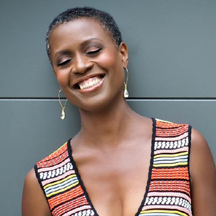 Free Vegan 101 Guide |
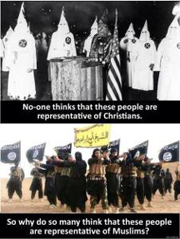 White Supremacists More Deadly than Jihadist |
 Gwen Ifill 1955-2016 | 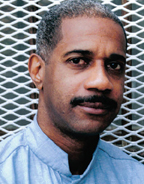 The Other Side Voices of the Incarcerated (2nd consecutive) |






